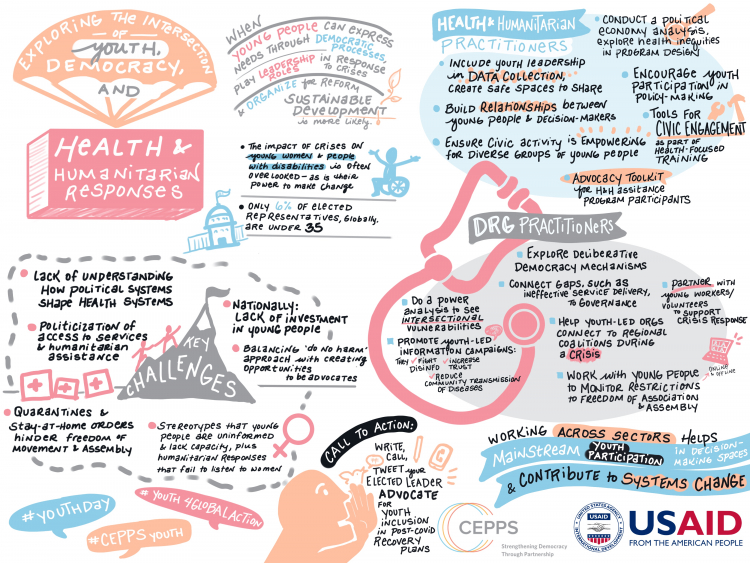CEPPS Youth Brief 3: Health and Humanitarian Responses
Young people are among a growing demographic who are uniquely impacted by health inequities and related threats created by disaster, climate change, and disease outbreaks. The impact of health and humanitarian crises, particularly on young women and people with disabilities, is often overlooked, as is their power to make change and actively contribute to public health initiatives. Likewise, young people are often the target of public health policies and programs, however they often have limited opportunities to shape these efforts or lack the political knowledge and organizing skills to ensure successful delivery. Globally, only six percent of young people under age 35 are elected representatives, which greatly reduces their ability to tackle health disparities directly through legislative action. Investing in the health and well-being of young people creates benefits across development sectors and enhances support for future generations. When young people are able to express their needs through democratic processes, collaborate with adult decision makers, play leadership roles in response to humanitarian crises, and organize for just and equitable healthsector reforms, sustainable development outcomes are more likely.
